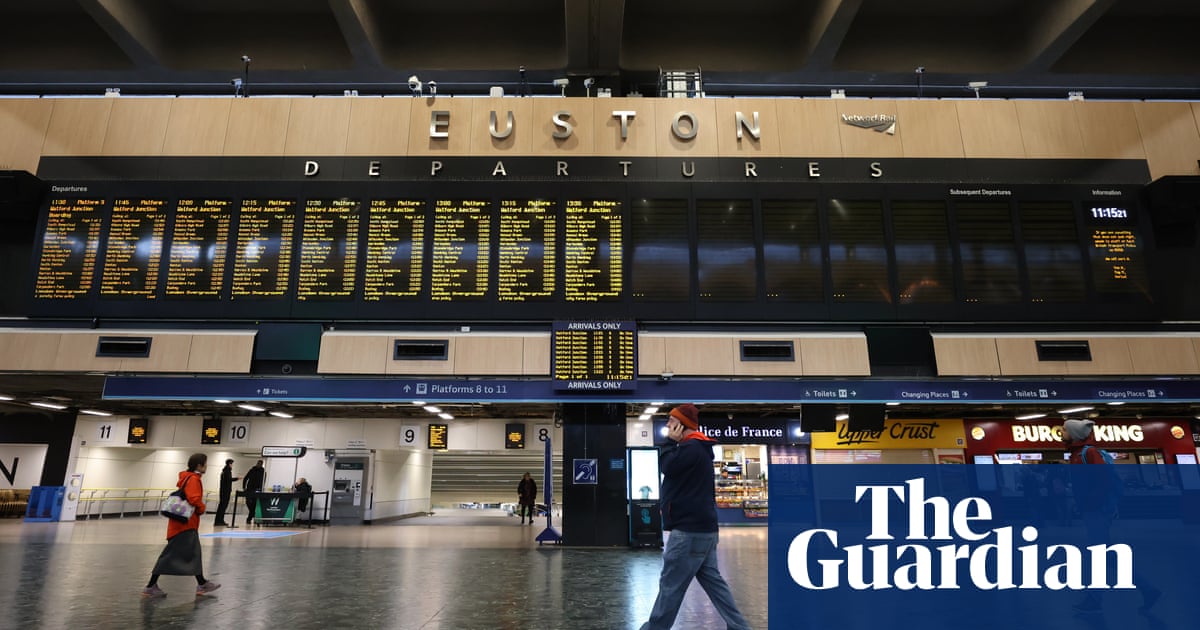
Train operators have been urged to release research showing the risk of contracting Covid on trains, with the chances now believed to be substantially higher than the figure publicised by the rail industry last year.
The industry-funded Rail Research and Safety Board (RSSB) said in July 2020 that the risk was just one infection in 11,000 average journeys in Great Britain.
Figures showing the risk climbing significantly have been issued to senior rail executives and Department for Transport officials at fortnightly team briefings throughout the year. However, the RSSB has not shared the latest numbers with the travelling public.
Although the RSSB says the risks of transmission on trains are “tolerably low”, the risk is understood to be much higher on long-distance journeys and with growing passenger numbers, and are likely to double without face coverings.
The briefings have been used to explain the comparative risks of various types of train travel and to update the Covid risk as policies and community infection rates change. It models risk on different services according to demand levels, mask-wearing rates, train ventilation, passenger spacing, vaccination rates and the relative infectiousness of variants.
While the RSSB has publicised the workings of its modelling, train operators are loth to permit the figures to be revealed.
The rail industry has rebuffed calls from passenger groups to release the data. Transport Focus and London Travelwatch have written to the Rail Delivery Group (RDG), which represents train operators and Network Rail, highlighting that “up-to-date data which could inform passenger decision making has not been disclosed to the public”.
The letter said: “People can only make good judgments about how and when to travel, and what action to take, if they are given good information. We therefore urge the industry, through RSSB, to immediately release information that gives passengers a clear understanding of the level of infection risk they need to consider. This is particularly important for more vulnerable passengers for whom infection could have more severe consequences than the average passenger.”
The RDG did not comment.
Ali Chegini, the RSSB’s director of system safety and health, said: “If people want or need to use the train, they can travel with confidence. Train travel is safer than other modes of land transport and the risk right now is tolerably low, especially in comparison with many other daily activities.
“Keeping viral transmission under control will be important, so retaining caution and wearing face coverings is one way of helping.”
He said the modelling was to “understand the impact of a wide range of factors and circumstances on different types of train journey, and enabling operators to plan ahead and reduce risk”, and had “moved on from providing a single average figure … It is not a ‘one size fits all’ prediction tool.”
However, a spokesperson confirmed that the RSSB does continue to present an average figure to rail executives, which it refused to divulge. They said it was not directly comparable to the July 2020 figure.
The risks will increase from Monday when mask-wearing in England will no longer be a legal requirement. The RSSB has said it would be sensible to recommend their continued use in all confined spaces, as masks reduce the risk of transmission by roughly half.
Labour’s shadow transport secretary, Jim McMahon, said the government needed to ensure passengers and staff were safe. He said: “Boris Johnson’s reckless decision to ditch masks is putting people’s lives at risk. Passing the buck to transport companies is not good enough.”
A DfT spokesperson said lifting legal restrictions on masks and social distancing guidance did not mean the risks had disappeared: “We expect and recommend that people wear a face covering in crowded and enclosed spaces where you come into contact with those you don’t normally meet, such as on public transport.
“We are working closely with stakeholders across the rail industry to ensure that the public can travel safely and confidently by train.”
The DfT indicated it had no evidence as to whether or not public transport was riskier than other settings.
Anthony Smith, the chief executive of the passenger watchdog Transport Focus, said the RSSB should make its data available.” But, he added: “I think they are nervous that people will put too much reliance on it. People can’t compute this stuff. In context, it’s a positive thing because it shows the rail industry is taking it incredibly seriously.”












